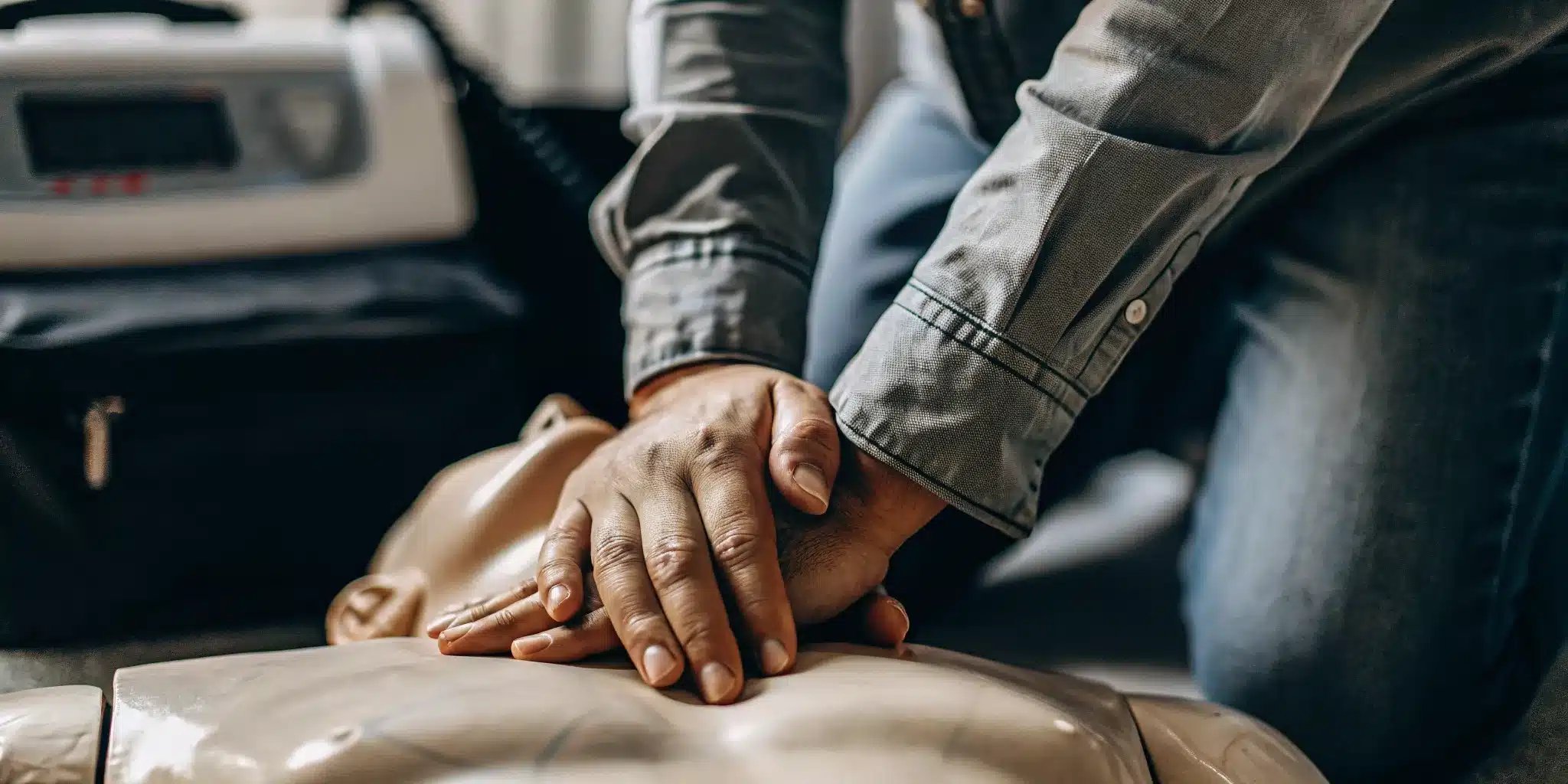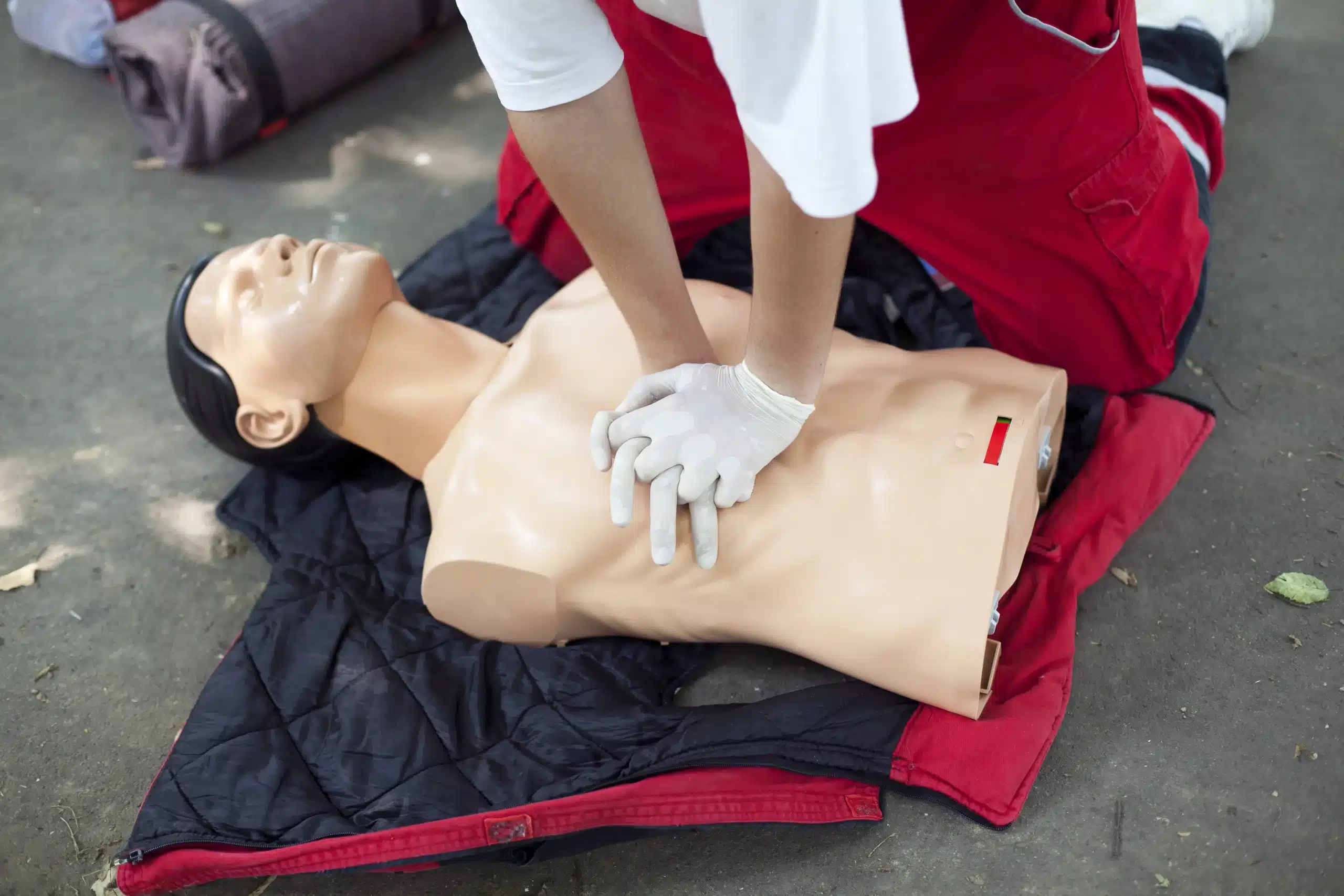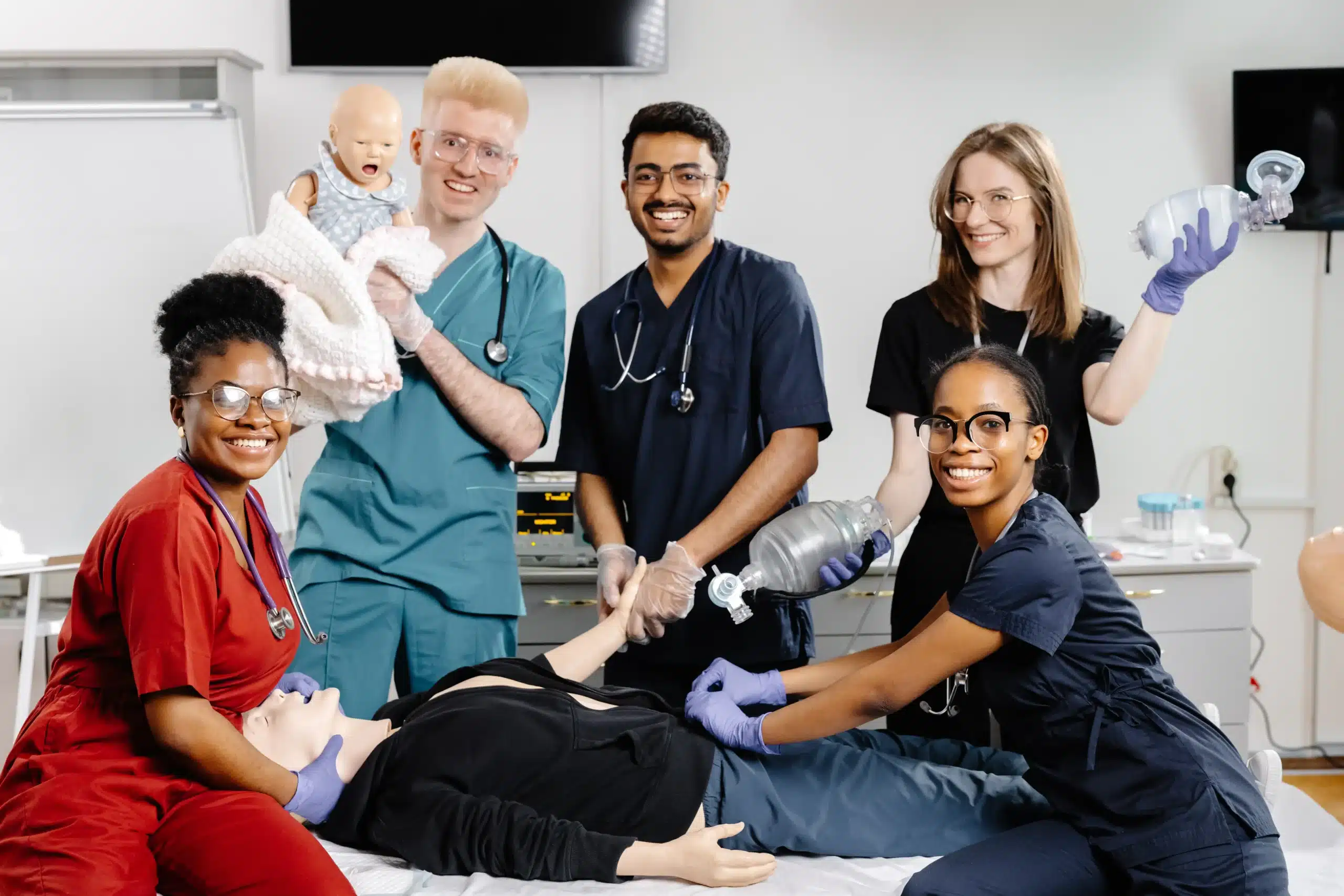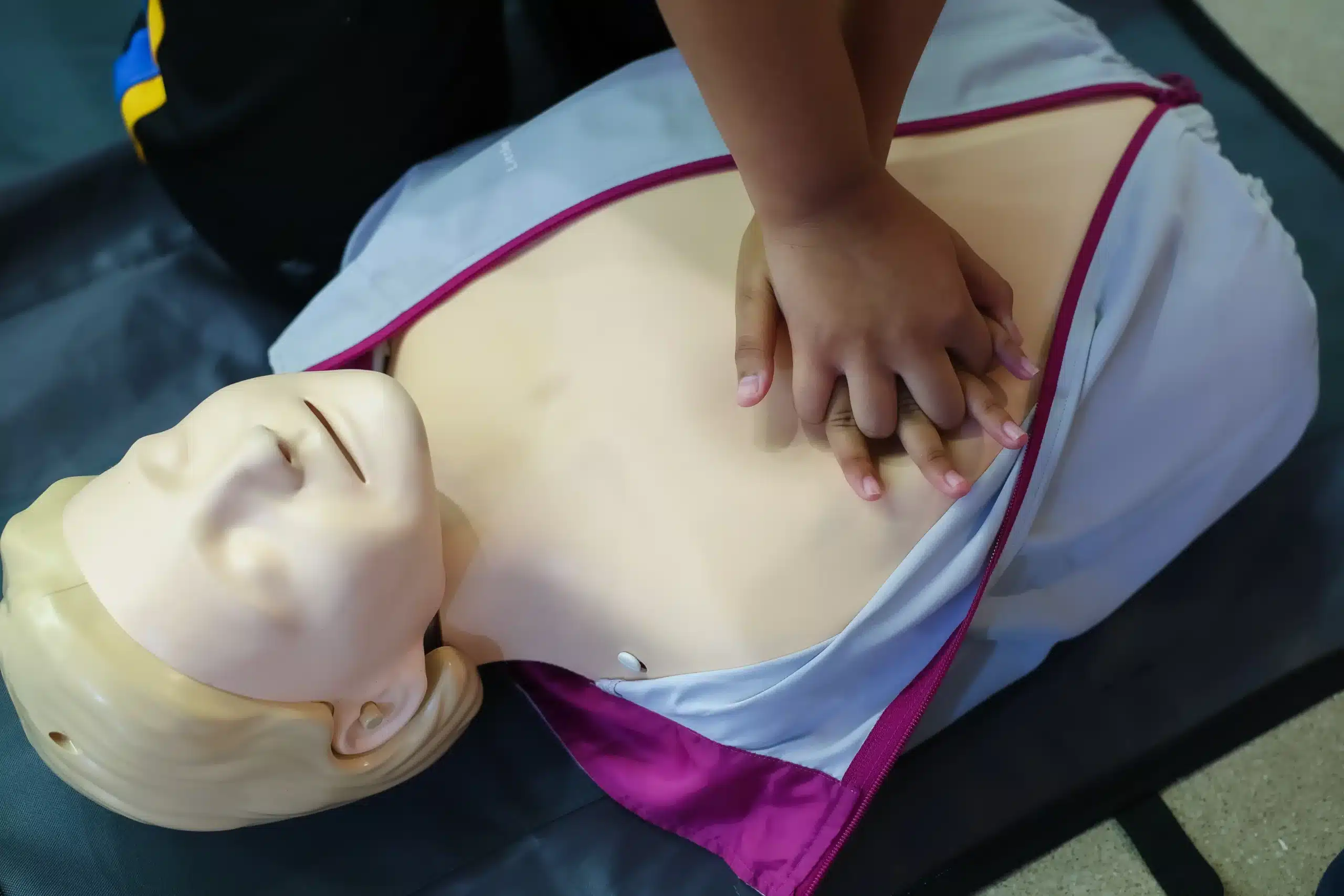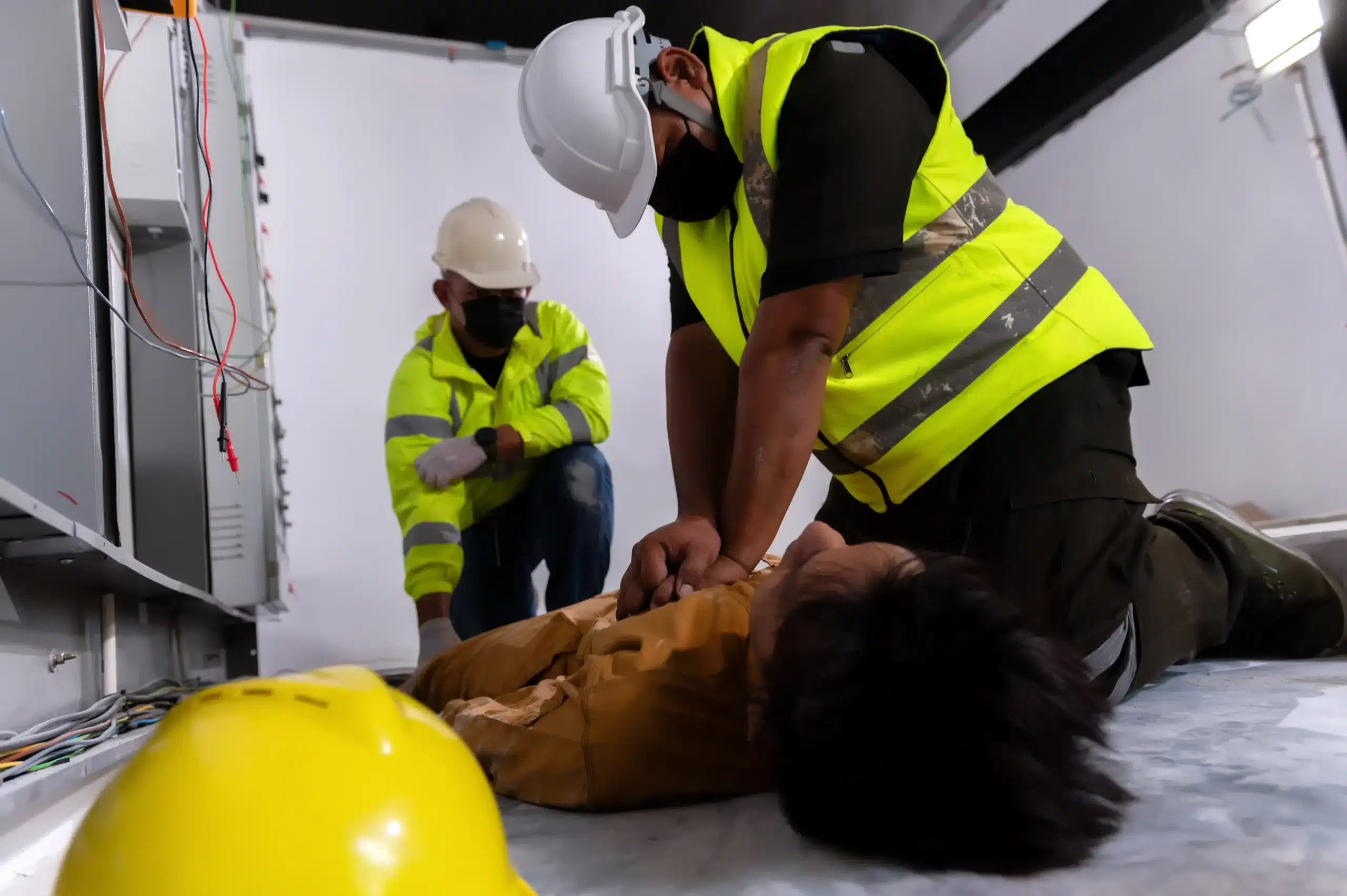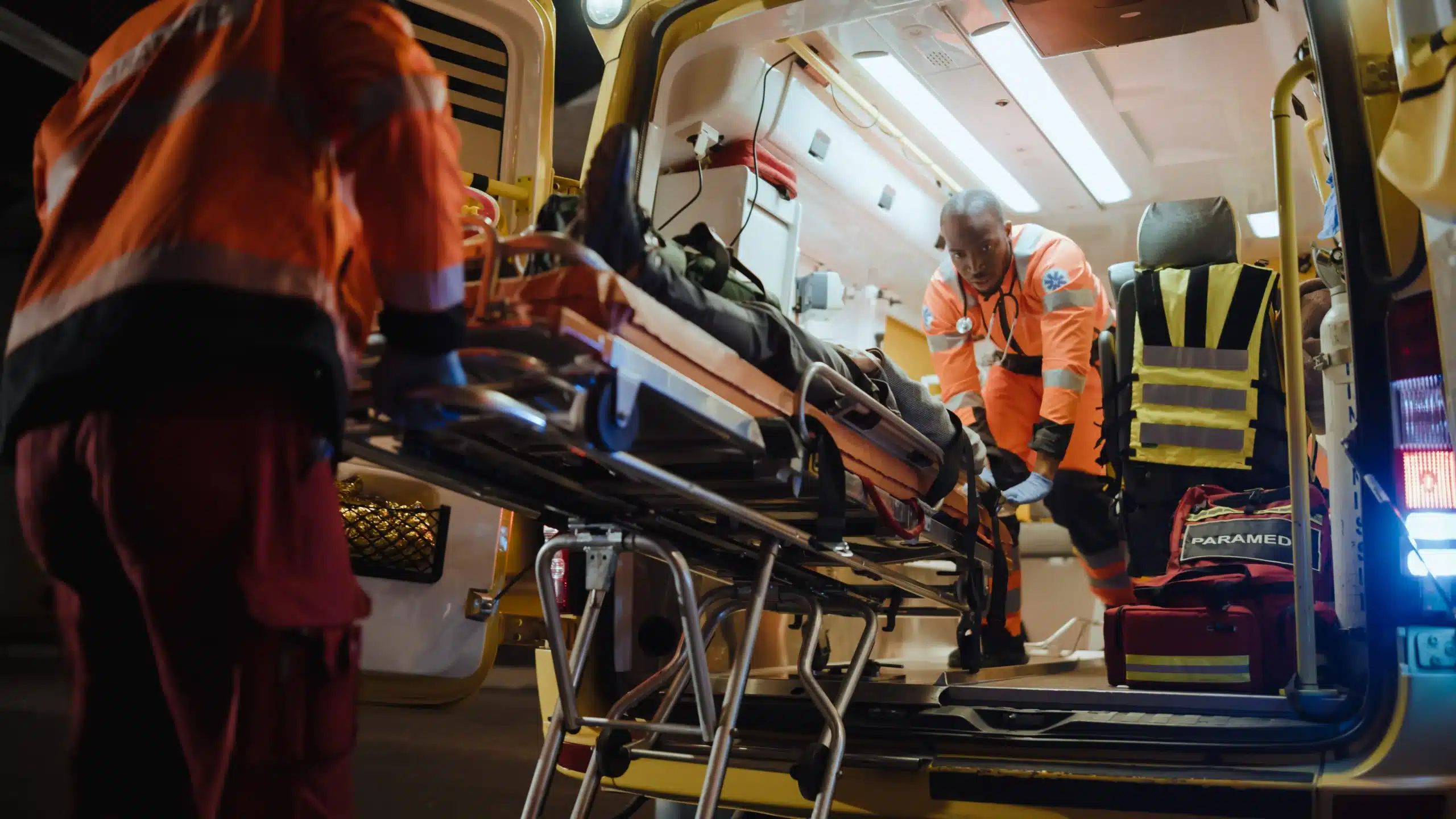In the face of a medical emergency, seconds can matter. Having the right training can make all the difference. If you’re in Concord and searching for American Heart Association (AHA) certification, this guide will provide you with a clear roadmap. We’ll cover the range of AHA courses available in Concord, from basic CPR to advanced life support certifications like ACLS and PALS. We’ll also delve into the process of finding a reputable training center, understanding course costs, and navigating schedules. This guide aims to simplify your search for AHA in Concord, empowering you to gain the skills and confidence to respond effectively in critical situations.
Key Takeaways
- AHA certification empowers you to handle emergencies: From basic CPR to advanced life support, these courses equip you with practical skills to respond confidently in critical situations. Find a course that matches your needs and make a difference.
- Select a training center that supports your learning: Consider factors like instructor qualifications, class size, available resources, and scheduling options to ensure a positive and effective learning experience.
- AHA certification is a valuable investment in yourself and your community: These certifications can open doors to career opportunities while enabling you to provide crucial assistance during medical emergencies.
What is AHA Certification in Concord?
AHA Certification in Concord refers to the training and certification programs offered by the American Heart Association (AHA). These programs cover essential lifesaving skills like CPR (Cardiopulmonary Resuscitation), BLS (Basic Life Support), ACLS (Advanced Cardiovascular Life Support), and PALS (Pediatric Advanced Life Support). These courses give people the knowledge and hands-on practice they need to respond effectively in medical emergencies.
The AHA is a leading authority in resuscitation science, education, and training. Their guidelines are the gold standard for millions of healthcare providers. The AHA emphasizes high-quality training in a comfortable environment, which is key for learning and remembering these critical skills.
Several excellent training centers in Concord offer AHA-certified courses, ensuring students receive the most current information and techniques. CPR Training Center offers a range of AHA-certified courses for both healthcare professionals and the general public, serving Concord and the surrounding Bay Area. Safety Training Seminars also provides AHA certifications, including BLS, ACLS, PALS, CPR, and First Aid training. These readily available resources make it easy for individuals and organizations in Concord to access the training they need.
AHA Courses in Concord
Several organizations in Concord offer American Heart Association (AHA) courses, covering various certifications. Whether you’re a healthcare provider, a concerned citizen, or looking to advance your career, there’s a course for you. Let’s explore some of the key AHA certifications available in Concord.
CPR Certification
CPR certification gives you the skills to respond to cardiac emergencies. These CPR classes in Concord teach you how to recognize cardiac arrest, perform chest compressions, and give rescue breaths. Learning CPR can empower you to make a real difference. Many providers, like CPR Training Center, offer AHA-certified courses, ensuring you receive high-quality instruction.
Basic Life Support (BLS)
Basic Life Support (BLS) training builds upon CPR and is crucial for healthcare professionals and first responders. BLS certification covers a broader range of skills, including using an AED, relieving choking, and two-rescuer CPR. This course provides a strong foundation for anyone working in healthcare.
Advanced Cardiovascular Life Support (ACLS)
Advanced Cardiovascular Life Support (ACLS) certification is designed for healthcare providers who manage complex cardiovascular emergencies. This advanced training covers topics like airway management, stroke recognition, and acute coronary syndromes. ACLS certification demonstrates a higher level of expertise in cardiac care.
Pediatric Advanced Life Support (PALS)
PALS courses focus on the specific needs of infants and children facing respiratory or cardiovascular emergencies. This specialized training covers pediatric assessment, resuscitation techniques, and effective team dynamics. PALS certification is essential for healthcare providers working with children.
Top AHA Training Centers in Concord
Finding the right training center is key to a positive learning experience. Here are a few reputable AHA Training Centers in Concord for your consideration:
Safety Training Seminars
Safety Training Seminars offers a comprehensive range of American Heart Association (AHA) certifications in Concord, CA. You can find everything from BLS and ACLS certifications to PALS, CPR, and First Aid training. With classes running daily from 8 am to 10 pm, seven days a week, they offer flexible scheduling to fit your busy life. They also emphasize providing affordable options, claiming to have the lowest prices in Contra Costa County. Learn more about their class schedules and pricing.
CPR Training Center
If you’re looking for a well-established provider, CPR Training Center has a long and solid reputation in the Bay Area. They provide a variety of AHA-certified courses, including ACLS, PALS, and CPR training, catering to various learning styles and needs. Explore their course catalog to find the right fit for you.
Life Safety Institute LLC
While the name might sound familiar, this Life Safety Institute LLC is located in Concord, New Hampshire, not California. They are an AHA-authorized training site offering certification in CPR, First Aid, BLS, ACLS, and PALS. If you’re in the New Hampshire area, you can explore their available courses.
ByGrace CPR Compliance
ByGrace CPR Compliance provides several AHA certifications, including BLS (traditional and blended eLearning/HeartCode), HeartSaver CPR/AED, and First Aid. They offer a good mix of learning options for those seeking AHA certification. Visit their website for more information on their programs.
AHA Course Costs & Value
Getting AHA certified is an investment in your skills and future, so it’s wise to understand the associated costs. This section breaks down typical expenses, potential savings, and the long-term value of your certification.
Average Certification Costs
The cost of AHA certification varies depending on the specific course and training center. Generally, standard CPR certification ranges from $50 to $100. While this might seem like a significant upfront cost, consider the invaluable skills you gain and the potential to save a life. It’s a small price to pay for such essential knowledge. Check out our BLS course options for specific pricing at Safety Training Seminars.
Discounts and Promotions
Safety Training Seminars is committed to making life-saving training accessible to everyone. We understand that cost can sometimes be a barrier, so we frequently offer discounts and promotions. Keep an eye on our website for current deals, which could include percentage discounts or special offers for certain groups. We also encourage you to explore our Low Price Guarantee to ensure you’re getting the best possible value.
Group Training
If you’re part of an organization, business, or even a group of friends, consider signing up for group training. Group training offers a fantastic way to learn alongside your colleagues or community members. Plus, it can often lead to discounted rates per person. Contact us directly through our contact form to discuss options and pricing for group training.
Certification ROI
The return on investment (ROI) for AHA certification goes beyond the monetary. Of course, having these certifications can open doors to career advancement, especially in healthcare. But the real value lies in the confidence and competence you’ll gain. Knowing you can respond effectively in a medical emergency is priceless. For healthcare professionals, certifications like RQI can significantly enhance your skills and improve patient outcomes. Ultimately, the ability to provide critical care in a crisis makes AHA certification a worthwhile investment. Explore our available BLS courses in Visalia to get started.
Choose the Right AHA Training Center
Finding the right AHA Training Center is crucial for a positive and effective learning experience. Here’s what to consider when making your decision:
Instructor Qualifications
Look for a training center that prioritizes experienced, certified instructors. Ideally, these instructors should be healthcare providers who bring real-world knowledge to the classroom. A focus on creating a low-stress learning environment is also essential for optimal learning. Ask about the instructors’ backgrounds and teaching styles to ensure a good fit.
Class Sizes & Formats
Consider class size and format when choosing a training center. Smaller classes often allow for more personalized instruction and interaction with the instructor. Inquire about the typical student-to-instructor ratio. Also, explore different class formats. Some centers offer blended learning, combining online coursework with in-person skills sessions. Check if the center offers a variety of class times to accommodate your availability.
Facility Features
The training facility itself can significantly impact your learning experience. A well-equipped facility with modern training equipment and comfortable learning spaces is important. If you’re coordinating training for a group or corporation, inquire about onsite training options and the center’s capacity. CPR Training Center, for example, specializes in these services.
Flexible Scheduling
Life gets busy, so flexible scheduling is key. A good training center will offer various class times and dates. They should also be adaptable when scheduling group training. Look for centers that offer weekend or evening classes, and clear contact information to discuss scheduling options. This flexibility ensures you can find a time that works for you.
Register for an AHA Course
So, you’re ready to sign up for an AHA course? Great! This section walks you through everything you need to know before you register, from prerequisites and materials to payment and cancellation policies. Being prepared ensures a smooth and successful learning experience.
Certification Prerequisites
Before registering, double-check the course prerequisites. Some advanced courses, like the ACLS Experienced Provider course, require existing BLS and ACLS skills, ECG interpretation knowledge, and a grasp of ACLS pharmacology. These advanced courses often build upon foundational knowledge, so make sure you meet the requirements before signing up for a class at our Visalia training center. We offer a variety of courses to fit your needs.
Required Materials
While some courses may offer digital materials, others might require specific manuals or equipment. Confirm what you’ll need beforehand. It’s also worth noting that the AHA often has specific guidelines regarding course materials and account usage. For example, once you begin an online course, switching accounts or getting refunds for incomplete courses isn’t typically possible. Knowing this upfront helps you avoid any surprises.
Payment Options
Most training centers offer various payment methods, from credit cards and debit cards to other online payment platforms. Some centers even offer promotional discounts on certain courses. Check with your chosen training center, like Safety Training Seminars, for their specific payment options and any available discounts. Knowing your options helps you budget effectively. We also offer a low price guarantee for our courses.
Cancellation & Rescheduling
Life happens, and sometimes plans change. Before registering, understand the training center’s cancellation and rescheduling policies. Understanding these policies ahead of time saves you potential headaches down the road. Look for a center that offers some flexibility if your schedule is unpredictable. Contact us to learn about our policies.
Benefits of AHA Certification
Choosing an American Heart Association (AHA) course over other CPR certifications offers distinct advantages. From career opportunities to community impact, AHA certification provides valuable benefits.
Career Advancement
For many healthcare professionals and those in related fields, holding an AHA certification is often a job requirement. Employers recognize the AHA as a leader in resuscitation science, education, and training. It’s the gold standard, signifying you’ve received high-quality training based on the latest scientific guidelines. This can give you a competitive edge when applying for jobs or promotions. The AHA also offers advanced certifications like the ACLS EP Course, which allows experienced providers to further their skills and claim continuing education credits.
Community Safety Impact
AHA-certified individuals play a vital role in community safety. By learning these life-saving skills, you’re equipped to respond effectively during emergencies. Whether it’s a cardiac arrest at a local park or a choking incident at a restaurant, your training can make a real difference. AHA CPR training contributes to a more prepared and resilient community. Knowing how to perform CPR or administer first aid can empower you to help others and potentially save lives.
Certification Validity & Renewal
AHA certifications are typically valid for two years. This timeframe ensures your knowledge and skills remain current with the latest guidelines. Renewal courses are straightforward and designed to refresh your expertise, allowing you to maintain your certification and continue providing high-quality care. Knowing your certification has a clear validity period also helps you stay organized and plan for your future training needs.
AHA Training Resources & Support
The American Heart Association (AHA) provides several resources to help you succeed in your training. These tools can make learning easier and more convenient, whether you’re preparing for your initial certification or renewing your skills.
Online Study Materials
The AHA offers a variety of online study materials to supplement your in-person training. These eLearning and blended learning courses allow you to learn at your own pace and review material whenever you need a refresher. This flexibility is especially helpful for those with busy schedules.
Practice Exams
Practice makes perfect, and the AHA understands that. Many courses include practice exams to help you gauge your understanding and identify areas where you might need additional review. Access to these resources often lasts for two years, giving you ample time to prepare. For details on access and policies, review the AHA’s best practices.
Hands-On Skills Sessions
While online resources are valuable, hands-on practice is essential for mastering CPR. Safety Training Seminars in Visalia emphasizes these practical components, offering skills sessions that allow you to apply what you’ve learned in a controlled environment with expert guidance. Contact us to learn more about our courses.
RQI Program
For healthcare providers, maintaining top-notch CPR skills is crucial. The Resuscitation Quality Improvement (RQI) Program offers quarterly training to help you stay sharp and confident in your abilities. This ongoing training ensures you’re always prepared to deliver high-quality CPR. Learn more about our RQI classes.
eCard Verification
After completing your AHA course, you’ll receive an eCard as proof of your certification. This digital format makes it easy to access and share your credentials. You and potential employers can quickly verify your certification status online.
AHA Course Reviews & Quality
Choosing the right AHA training course is a big decision. You want high-quality instruction and a positive learning experience. Checking out reviews and feedback gives you a glimpse into what other students have experienced and can help you feel confident in your choice.
Instructor Feedback
Positive instructor feedback is key. Look for comments that mention knowledgeable, supportive, and engaging instructors. For example, CPR Training Center in Concord emphasizes its “low-stress learning environments taught by healthcare providers.” This focus on a comfortable atmosphere, led by experienced professionals, makes a difference in how well you absorb the material. Learning life-saving skills shouldn’t be intimidating!
Course Content Reviews
Reviews focusing on course content can tell you how comprehensive and up-to-date the training is. The American Heart Association (AHA) is known for its rigorous standards, so look for courses that adhere to the latest AHA guidelines. Concord CPR Classes highlights how “AHA BLS CPR classes provide participants with the essential training” for cardiac emergencies. For more specialized training, like the ACLS EP Course, the AHA provides course details, ensuring the training meets the needs of healthcare professionals.
Overall Experience Ratings
Finally, pay attention to overall ratings. Sites like Yelp and Birdeye offer valuable insights. A high average rating, like the 4.8 stars for CPR Training Center (Yelp reviews), suggests a strong track record of student satisfaction. Similarly, the positive feedback for Safety Training Seminars can give you confidence in their learning experience. Reading reviews gives you a feel for what other students say about the course, instructors, and facilities.
AHA in Concord: FAQs
What does the Heartsaver First Aid CPR AED course cover?
The American Heart Association’s (AHA) Heartsaver First Aid CPR AED courses equip you with the skills to respond to various emergencies. These courses cover essential life-saving techniques, including CPR, AED usage, and first aid for common injuries. They empower you to act confidently in critical situations, whether at home, work, or out in your community. For more details, check out the AHA’s Heartsaver course information.
What training formats are available for AHA courses?
The AHA offers flexible training options to fit your schedule. You can choose from traditional classroom learning, blended learning (a mix of online and in-person instruction), and eLearning, which lets you complete the coursework online at your own pace.
How long can I access the online materials?
You typically have access to the online portion of your AHA course for two years after enrollment, unless the AHA discontinues the specific course. Keep in mind that refunds aren’t provided once you begin the online portion, even if you don’t complete it. The AHA offers additional information regarding access to eLearning courses.
How can I confirm my AHA certification is legitimate?
You’ll receive a certification card after completing your AHA course. Verify its authenticity by ensuring your card matches the official AHA design. Many training centers now provide eCards, a secure and convenient digital version of your certification. This simplifies accessing and sharing your credentials.
Related Articles
- CPR, BLS, ACLS, PALS, & First-aid Classes in Visalia, CA
- BLS Certification in Tulare County: Your Complete Guide – Visalia CPR Classes
- AHA ACLS Classes in Visalia, CA – Visalia CPR Classes
- CPR Training in Visalia: Your Complete Guide – Visalia CPR Classes
- AHA PALS Classes in Visalia, CA – Visalia CPR Classes
Frequently Asked Questions
What if I need CPR training for my entire workplace?
Group training is a great option for businesses and organizations. Many training centers offer discounted rates for group sessions and can often tailor the training to your specific industry or workplace needs. Reach out to a training center directly to discuss options and customize a program that works for your team.
How do I choose between BLS and Heartsaver CPR/AED training?
BLS (Basic Life Support) certification is generally recommended for healthcare providers and those in related fields, as it covers a broader range of skills, including two-rescuer CPR and the use of a bag-valve mask. Heartsaver CPR/AED is designed for the general public and focuses on essential life-saving techniques for adults, children, and infants.
What’s the difference between ACLS and PALS?
ACLS (Advanced Cardiovascular Life Support) is geared towards healthcare professionals who manage complex cardiovascular emergencies in adults, while PALS (Pediatric Advanced Life Support) focuses on the specific needs of infants and children experiencing respiratory or cardiovascular emergencies.
How can I find AHA courses near me?
The AHA website has a handy course locator tool that allows you to search for certified training centers in your area. You can also search online for “AHA training” along with your city or zip code to find local providers.
What if I have a specific question about a course before I register?
It’s always a good idea to contact the training center directly. They can answer any specific questions you have about course content, scheduling, prerequisites, or anything else that might be on your mind. Most centers have contact information readily available on their websites, making it easy to get in touch.
